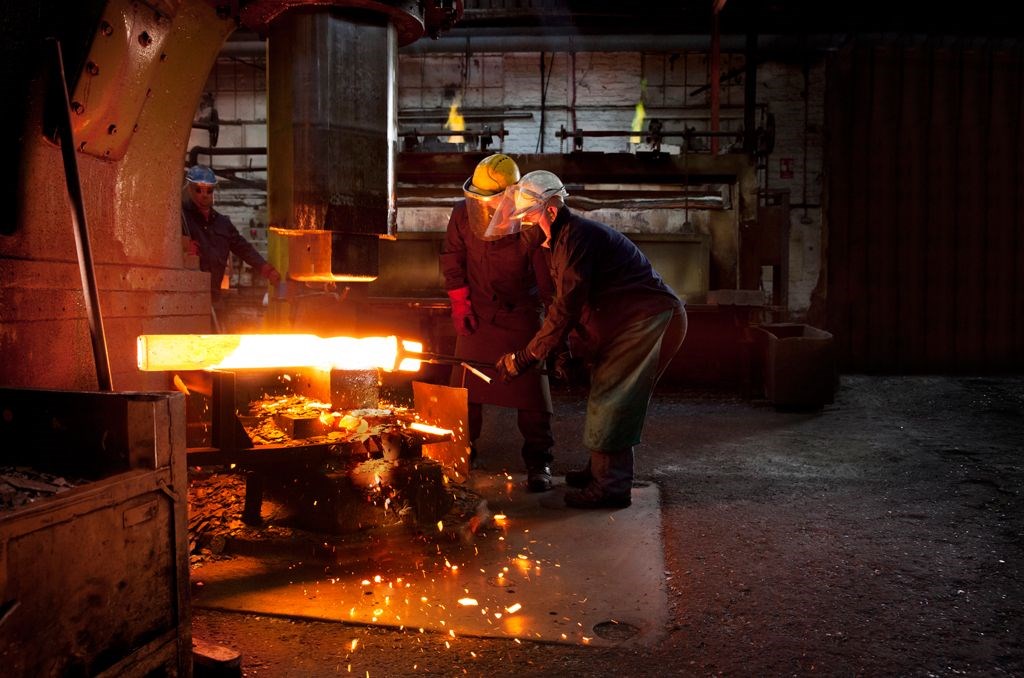What is the difference between casting and forging?
Published date: 14 December 2023

When it comes to manufacturing metal parts and components, two primary methods stand out: casting and forging. These age-old techniques play a fundamental role in various industries, each offering unique advantages and drawbacks. In this blog post, we will delve into the differences between casting and forging, shedding light on their respective processes, applications, and the industries that rely on them.
Casting
Casting is a process that involves heating metal to a liquid state and then pouring it into a die or mould to solidify. This method has been used for millennia, dating back to the year 4000 BC, and is renowned for its precision and versatility.
Benefits of Casting:
- Complex geometries: Casting can create intricate shapes and internal chambers that would be challenging to achieve through forging.
- Material variety: Casting allows for a wide range of materials, including ferrous and non-ferrous metals, ceramics, and even plastics.
- Cost-effective for mass production: Casting is particularly economical for producing large quantities of components.
Drawbacks of Casting:
- Defects: Cast parts may have small interior cracks or holes if the metal mass cooled unevenly.
- Contamination: Contamination of the metal while in liquid state may produce parts that have lower strength and durability.
Common Products and Industries for Casting:
Casting is extensively used in industries such as aerospace, automotive, and jewellery making. It’s the go-to method for crafting intricate engine components, medical devices, industrial equipment and jewellery pieces.
Forging
Forging is a metalworking process that involves shaping metal by applying compressive force to it, typically under extreme heat. This method is known for producing robust and durable components.
Benefits of Forging:
- Exceptional strength: Forged parts are renowned for their superior strength and durability, making them ideal for applications requiring high load-bearing capacity.
- Improved grain structure: The forging process refines the metal’s grain structure, enhancing its mechanical properties.
- Reduced porosity: Compared to casting, forging results in fewer porosity issues, ensuring a more reliable final product.
Drawbacks of Forging:
- Limited complex shapes: Forging is less suitable for intricate and complex geometries, as it relies on the application of force to shape the metal.
- Higher initial costs: Forging requires substantial investment in machinery, facilities, and personnel. It demands a high-temperature furnace, specialised buildings, and shock-absorption measures.
Common Products and Industries for Forging:
Forging finds its primary applications in industries such as oil and gas, aerospace, automotive, and defence. It is often used for producing components like pipeline fittings, steam engines and turbines, hand tools and railroad equipment.
Choosing the Right Method
The decision between casting and forging ultimately hinges on the specific project requirements. When intricate and detailed components are needed, casting shines, offering flexibility for complex shapes. For applications prioritising strength and durability, forging is the optimal choice, excelling in crafting robust and reliable parts. The choice you make should align with the unique demands of your project and the industries you serve.
At Conro Electronics, we’ll show you how to improve product reliability while increasing performance and lowering costs. Our team of technical support specialists will provide your company with dependable global supply, unrivalled efficiency, and superior technical support.
Feel free to contact us on 0208 953 1211 or send us an email to info@conro.com




Comments
There are currently no comments, be the first to comment.